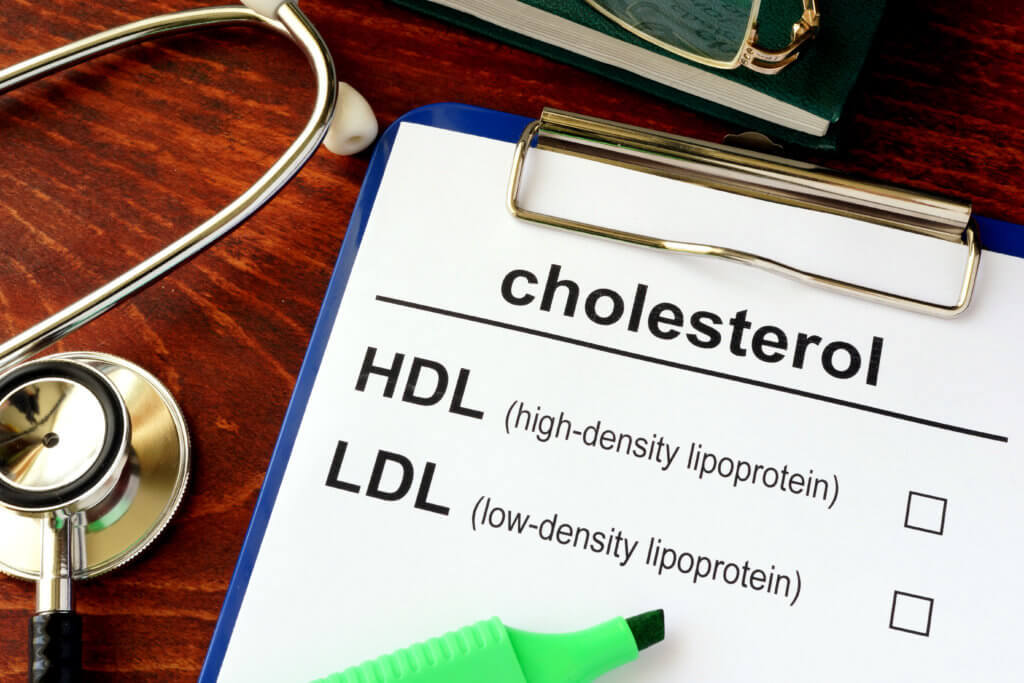BOSTON — The notion that obesity has a connection to a higher risk of cardiovascular disease is hardly a new concept. While studies continue to show that being obese isn’t going to do your heart any favors, researchers from the Boston University Chobanian & Avedisian School of Medicine are detailing the major role LDL cholesterol plays in this association between obesity and heart disease.
Obesity is a major problem in America, but the statistics from the Centers for Disease Control and Prevention help to put it into perspective. Astoundingly, more than 40 percent of U.S. adults are classified as obese. Meanwhile, just under one in 10 Americans (9%) were considered severely obese (class 3) as of 2020.
Generally speaking, obesity has a link to a plethora of issues, such as hyperlipidemia (high concentrations of fats/lipids in the blood), diabetes, hypertension, chronic inflammation, and oxidative stress, known to increase one’s susceptibility to cardiovascular disease.
Low-density lipoprotein (LDL), meanwhile, is a nanoparticle that transports cholesterol in the blood. While cholesterol is beneficial in moderation, and absolutely essential for normal cellular function, too much cholesterol can build up in arteries and eventually cause cardiovascular disease. This is why LDL cholesterol is often referred to as “bad” cholesterol.
These latest findings suggest that among the obese, LDL does not function normally, thus increasing one’s risk of cardiovascular disease.
“Our results showed that in obesity, it is not the quantity but the quality of LDL that contributes to disease: ‘bad cholesterol’ becomes worse due to obesity-associated inflammation. As a result, cholesterol delivery is shifted from normal to abnormal, so more cholesterol is retained in the arterial wall, ultimately forming plaques that occlude the blood flow,” says corresponding author Shobini Jayaraman, PhD, a senior research scientist in pharmacology, physiology and biophysics, in a university release.

To reach these findings, blood lipoproteins collected from patients with severe obesity before bariatric surgery, as well as six and 12 months afterward, were compared against lipoproteins from a control group of lean healthy participants. Then, the research team explored lipoprotein interactions via three cell receptors key to LDL function.
This approach encompassed the LDL receptor (which directs normal uptake of cholesterol via cells) as well as two scavenger receptors (which can cause harmful cholesterol accumulation). After that, an assay was designed to quantify lipoprotein interactions along with many extracellular matrix components. Such interactions may promote the harmful retention of lipoproteins in arteries, eventually causing atherosclerosis. Study authors also analyzed LDL composition, and made use of liquid chromatography and other biochemical methods to explore nanoparticle charge and aggregation – which has been known to influence LDL functionality.
Among obese patients, LDL particles became dysfunctional and less efficient at delivering their cholesterol cargo to LDL receptors. Moreover, the LDL particle also tended to either preferentially deliver cholesterol to scavenger receptors or adhere to the arterial wall matrix.
“This aberrant behavior stemmed from alterations in LDL biochemical composition induced by obesity-associated inflammation. These harmful changes contributed to increased risk of CVD in patients with obesity,” Dr. Jayaraman adds.
According to the research team, in the first year post-bariatric surgery — when patients lost a lot of weight — their obesity-induced inflammation subsided and their LDL quality progressively improved both six and 12 months post-operation. However, LDL quality did not reach the levels of lean controls, nor did the BMI. Still, LDL quality clearly correlated with weight loss; the closer a patient’s weight was to normal, the better their LDL quality, ultimately resulting in a lower risk of cardiovascular disease.
“Our study shows that LDL quality continues to improve as a patient’s weight normalizes, suggesting that the risk of CVD continues to decline. This is promising not only for patients undergoing bariatric surgery but perhaps for many others who are overweight or obese and use various approaches to weight loss,” concludes senior author Olga Gursky, PhD, professor of pharmacology, physiology and biophysics at the school.
The study is published in the Journal of Lipid Research.
You might also be interested in:
- Best Ways To Lower Cholesterol: Top 5 Tips Most Recommended By Health Experts
- 6 common ‘heart-healthy’ supplements fail to lower bad cholesterol
- Revolutionary drug targeting the liver successfully reverses obesity in mice
- Best Weight Loss Programs: Top 5 Diets Most Recommended By Experts

